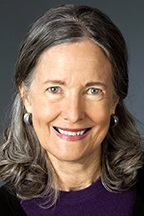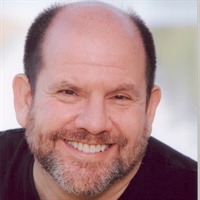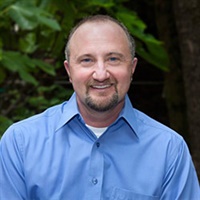Information
CC21 Panel 04 - Managing Partners Who Act Out Or Are Highly Reactive In Their Relationships - Helen LaKelly Hunt, PhD; Caroline Welch; Stan Tatkin, PsyD; Shawn Giammattei, PhD
Original Program Date :
Jun 06, 2021 (PST)
Description: This panel addresses managing reactivity in relationships, focusing on a neurodivergent, neurotypical, trans gay couple. Topics include touch sensitivity, parenting conflicts, and emotional regulation. Highlights include the use of narrative therapy, positive Intelligence, dialog practices, and brain-based techniques to strengthen empathy and resilience. Emphasis is placed on mindfulness, direct intervention, and supporting relationship dynamics shaped by neurodiversity.
Syllabus Description: Acting out is a response to anxiety, and such behavior can be targeted to a partner. Methods of assessing and addressing acting out will be covered.
Educational Objectives:
- Describe three examples of acting out in a relationship.
- Given an acting out patient, describe a treatment plan.
- Given an acting out patient, describe how to introduce mindfulness.
*Sessions may be edited for content and to preserve confidentiality*
Helen LaKelly Hunt, PhD

Harville Hendrix, PhD and Helen LaKelly Hunt, PhD are partners in life and work. Their lives and work are integrated in their commitment to the transformation of couples and families and to the evolution of a relational culture that supports universal equality.
Caroline S. Welch

Caroline is a graduate of the University of Wisconsin Law School and is admitted to the State Bars of California, Texas and Wisconsin. She also holds a Master’s degree in Communications from the University of Southern California. She is the CEO of Mind Your Brain, Inc. and Co-founder of MindSightMedia, Inc.
Caroline spent 12 years in private practice at Kelley Drye & Warren in civil litigation before serving as Vice President in Litigation at Metro-Goldwyn-Mayer Studios, Inc. Prior to MGM, she served as Senior Counsel at Spelling Entertainment Group, Inc. where she supervised litigation and served as the production attorney on the set of “Judge Judy” for two seasons.
Caroline also had a private business mediation practice for three years prior to joining Mind Your Brain, Inc. Her experience in law, mediation and mindfulness has led her to be an invited international speaker at conferences including Mindful Life and 1440 Multiversity.
Her pro bono work includes: Judge Pro Tem for the Los Angeles Superior Court, mediator on the Alternative Dispute Resolution Panel for the Los Angeles Superior Court, and volunteer at the Legal Aid Foundation of Los Angeles and the Domestic Violence Clinic at the Santa Monica courthouse. Caroline also serves on the boards of Sojourn (a division of the Ocean Park Community Center), Everychild Foundation and the University of California-Berkeley Parents Board. Caroline may be contacted at CarolineWelch@DrDanSiegel.com.
Stan Tatkin, PsyD, MFT

Stan Tatkin, PsyD, MFT, is a clinician, researcher, teacher, and developer of A Psychobiological Approach to Couple Therapy (PACT®). He has a clinical practice in Calabasas, CA, where he has specialized for the last 15 years in working with couples and individuals who wish to be in relationships. He and his wife, Tracey Boldemann-Tatkin, developed the PACT Institute for the purpose of training other psychotherapists to use this method in their clinical practice.
Shawn Giammattei, PhD

Shawn V. Giammattei, PhD is a clinical psychologist licensed in the state of California and the founder of the newly developed Gender Health Training Institute. He has a doctorate in Clinical Psychology from the California School of Professional Psychology and has 19 years of experience working with individuals, couples, and families around a wide variety of issues. He specializes in working with LGBTQ couples and families with a particular focus on the specific issues that arise for transgender/gender expansive (TGE) couples and TGE youth and their families.
Dr. Giammattei is certified by the World Professional Association for Transgender Health as a gender specialist and is on faculty for their Global Education Initiative. He is an affiliated researcher, adjunct professor, and recent past Coordinator of Training for the Rockway Institute: A national center for LGBT psychology research, education, and public policy, at the California School of Professional Psychology at Alliant International University. He co-created the Rockway Certificate in LGBT Human Services, which includes the first semester long graduate course in transgender mental health and currently teaches graduate level courses in LGBT psychology, transgender mental health, and couples & family therapy. He is a research consultant to Kaiser Permanente, Northern California and Emory University regarding their NIH and PCORI funded studies looking at health outcomes of transgender patients. He is also past president and current council member of the Association of Family Therapists of Northern California; past vice-president and board member of the American Family Therapy Academy; and a member of Mind the Gap, an organization affiliated with the University of California, Beniof, Child and Adolescent Gender Clinic focused on the needs of transgender youth and their families.

